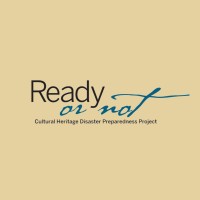
“Ready – Or Not”: Cultural Heritage Disaster Preparedness
The “Ready—Or Not” Project provides free emergency preparedness services to California organizations that care for cultural and historic resources (e.g., archives, libraries, museums, and tribal nations). This project is supported in whole or in part with funding provided by the State of California (administered by the California State Library), and runs through May 2026. California heritage institutions can request free consulting services by filling out an online form, emailing [email protected], or calling 855-501-3020. Free Services Include: - Emergency Preparedness Assessments (On-Site) - Disaster Plan Creation or Update (Remote/Online) - In-Person Wet Salvage Workshops - Online Classes






